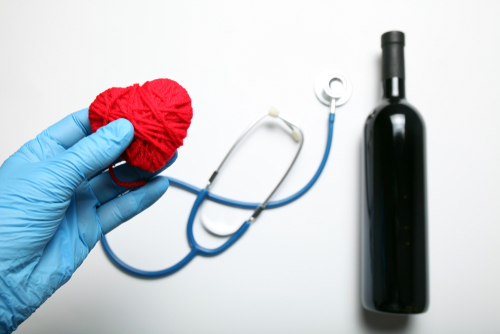Wine has been enjoyed for centuries, and its health benefits have been touted for just as long. While some of the purported benefits of wine may be nothing more than old wives’ tales, there is actually some science to back up many of the claims. Here are a few potential health benefits of wine that you may not have known about.
Potential Health Benefits of Wine
Wine May Help Reduce the Risk of Type 2 Diabetes
Moderate alcohol consumption is associated with reduced risk of both Type 2 diabetes and autoimmune diabetes. A protective effect of alcohol intake may be limited to men. High alcohol consumption does not seem to carry an increased risk of diabetes.
Wine May Lower Blood Pressure
A higher intake of flavonoid-rich foods (present in berries, apples, tea, and red wine) is associated with a clinically relevant reduction in blood pressure levels, an association that is partially explained by characteristics of the gut microbiome.
Wine Might Be Good for The Heart
The antioxidants in wine might help prevent heart disease by reducing low-density lipoprotein (LDL, or “bad”) cholesterol and preventing blood clots.
Wine may help to boost brain power.
Studies have shown that moderate wine consumption can help to improve cognitive function and prevent age-related mental decline. The antioxidants in wine are thought to protect the brain from damage caused by free radicals.
Wine May Increase Bone Density
There is “mounting epidemiological evidence” indicating an association “between the moderate ingestion of alcoholic beverages and higher bone mineral density.” according to a study published by Cambridge University.
How Much Wine Can I Drink in a Day?
According to the MayoClinic, If you already drink red wine, do so in moderation. For healthy adults, that means:
- Up to one drink a day for women of all ages.
- Up to one drink a day for men older than age 65.
- Up to two drinks a day for men aged 65 and younger. The limit for men is higher because men generally weigh more than women and have more of an enzyme that metabolizes alcohol.
A drink is defined as:
- 12 ounces (355 milliliters) of beer
- 5 ounces (148 milliliters) of wine
- 1.5 ounces (44 milliliters) of 80-proof distilled spirits
While wine has potential health benefits, it’s important to drink it in moderation. Wine can be a part of a healthy diet when consumed responsibly. Are you ready to enjoy the benefits of red wine?







